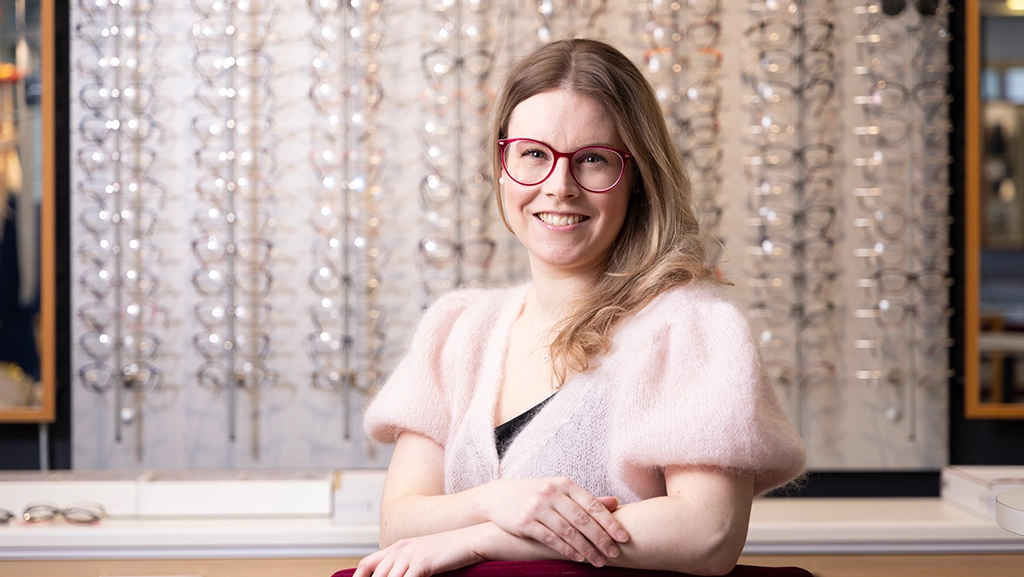The Master’s Degree Programme in Clinical Optometry provided Anna Pietilä with new and valuable competence
When Anna Pietilä heard about Oamk’s Master’s Degree Programme in Clinical Optometry, she did not think twice about applying for it.

When graduating as an optometrist in 2012, Anna knew she wanted to study more. At the time, she planned to complete further studies abroad, as master’s level education in optometry was not yet available in Finland.
However, she did not carry out her plans, as almost immediately after graduation Anna was offered the opportunity to become an entrepreneur in her home town, Uusikaupunki.
She started running her own optician shop, performing diverse tasks such as clinical optician work, sales, marketing and workshop activities.
“Before my master’s studies, I focused on entrepreneurship for ten years and completed various continuing education courses on the side,” Anna says.
Interesting and diverse studies
Anna has always enjoyed studying, and the master’s studies at Oamk were no exception.
“The content of the studies was interesting and diverse. We dug deeper into topics than in basic education, which increased my understanding of many things.”
The studies in clinical optometry include, for example, anatomy and physiology, biochemistry and genetics, microbiology and immunology, and pathophysiology and pharmacology. In Anna’s mind, the most interesting field was neuro-optometry, and her thesis was also related to it.
“My thesis dealt with opticians’ capability of detecting trochlear nerve damage. I have always been interested in neurology.”
Anna also liked the fact that her studies were not tied to a specific place or time. She did not have problems completing the studies while working.
“The studies were mainly organised remotely. There was a suitable amount of in-person teaching, so travelling to Oulu did not become a stress factor.”
Anna found it positive to have a few in-person days of study. During them, she could practice what she had read about and was able to meet other students.
“I gained a group of nice new friends through studies. We can continue to be in contact and share our expertise in the future.”
Self-direction and initiative are needed in studies
According to Anna, the studies require self-direction and initiative from students, as no one gives you a reading schedule or tells you when to do your writing assignments.
“It’s a good idea to reserve enough time for studying and to draw up a schedule for studies. I made a reading plan for myself and took enough days off from work based on it.”
Anna’s master’s studies provided her with a broad theoretical foundation that she can use in patient work and when advising customers. The studies also encouraged her to engage in more thorough clinical work and to study patients’ eye health in even greater detail.
“They’ve also helped me draw up a medical history for patients and use it to guide the examination, as well as interpret findings and make referrals.”
Teaching jobs are interesting
After her studies, Anna at least plans to discuss the results of her thesis with anyone interested in hearing about them. She also has research material left – enough for a dissertation.
“Time will tell if I continue further with the material. I’m also interested in teaching assignments.”
Anna recommends the Master’s Degree Programme in Clinical Optometry to anyone interested in the field and to those who want to provide better eye health service to an ageing population.
“The degree provides good skills for examining and treating the eye health of the ageing population. Since the waiting times to see an ophthalmologist are long, thanks to this training, an optometrist can also help the patient, give advice and refer them to the right place at the right time,” she says.